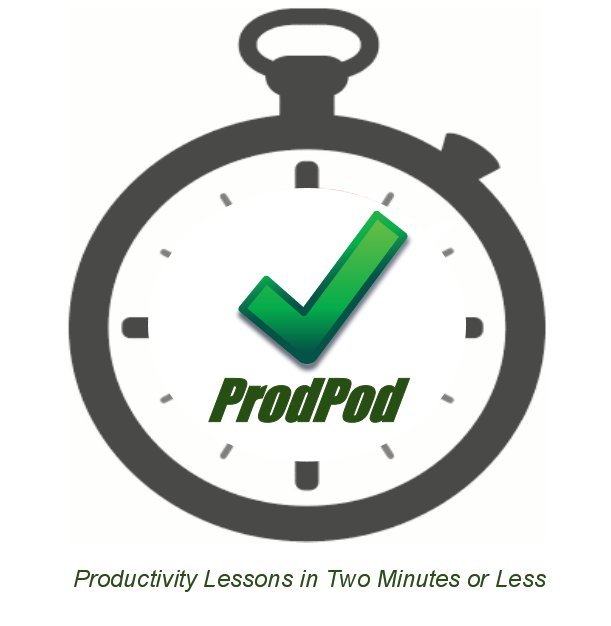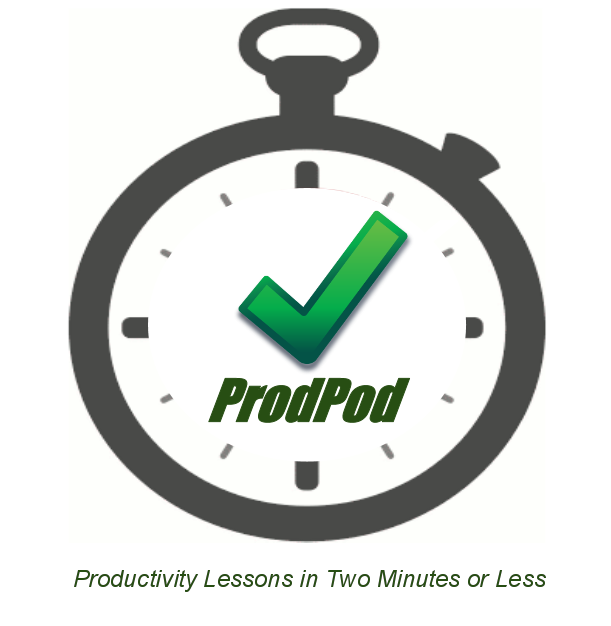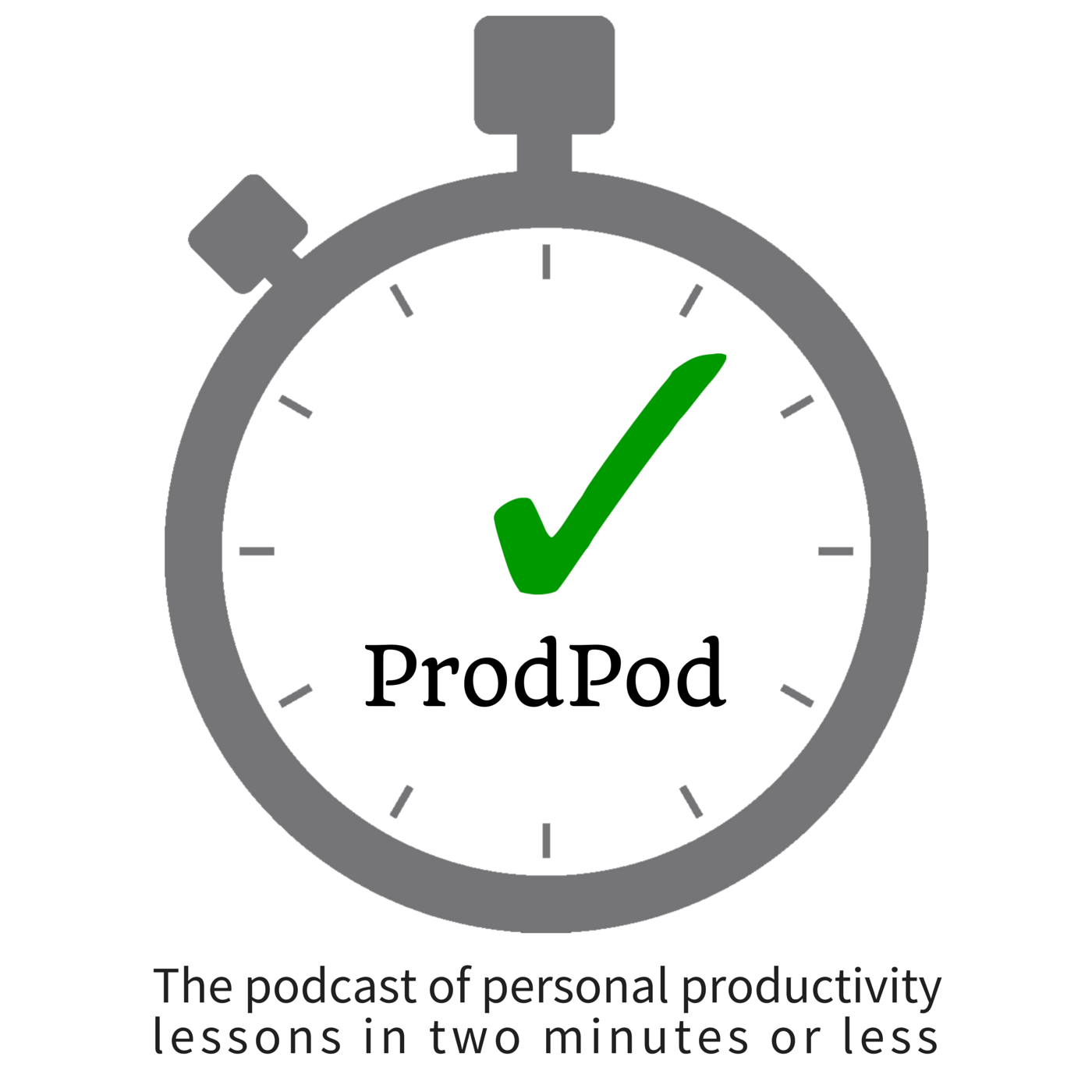Episodes

Tuesday Feb 05, 2013
Tuesday Feb 05, 2013
The Four-Hour Workweek by Tim Ferriss mentions the Pareto Principle (which I explained in Episode 49), so I figured I would highlight the book's key points in this episode.
The author uses a strategy composed of Definition, Elimination, Automation and then Liberation (the acronym, DEAL) to effectuate his "lifestyle design" concept.
First, Definition boils down to planning. What are your goals, needs and wants?
Next, Elimination is the where he discusses effectiveness over efficiency. And, while I disagree with his bases for the discussion, he effectively discusses using the 80/20 rule here to learn to focus, say "no," and eliminate distractions (for example, the idea of going on an "information diet").
Then, the section on Automation is about tactics to create passive revenue streams; basically, businesses that can run themselves. While this idea is appealing, I say stick to doing what you're passionate about and avoid this get-rich-quick scheme-y thought stream. Either way, I think he adds some great thoughts on hiring a virtual assistant (see ProdPod Episodes 38 through 41 on outsourcing parts of your life for greater productivity)!
Finally, Liberation covers the concept of making your life mobile, if possible.
In a practical sense, I think you'd apply his methodology as Definition, Elimination, Liberation and then Automation, if you're already working full-time for an employer; but that's up to practicalities of finance and time/energy resources available to you.
One key concept that I really enjoyed about the book was his idea of mini-retirements so that you can enjoy the fruits of your labor before you're too old and gray to really enjoy life.
Altogether, the Four-Hour Workweek provides you a framework to understand that your time and life are valuable beyond the 9-5 humdrum. And for that, we can all appreciate ourselves a little more.

Thursday Jan 24, 2013
Thursday Jan 24, 2013
For ProdPod's 50th episode, I had the pleasure of interviewing fitness/nutrition expert, Noelle McKenzie (CEO of Fitness a Way of Life - fitnessawayoflife.com), about some productivity tips for getting your workout / exercise optimized in under 10 minutes! Enjoy!

Tuesday Jan 15, 2013
ProdPod: Episode 49 -- Pareto Principle of Productivity
Tuesday Jan 15, 2013
Tuesday Jan 15, 2013
In this episode I discuss the Pareto Principle of Productivity, so 20% of the next two minutes contains 80% of its productive value! ;-) Enjoy!
At a very young age, we understand that some things are more important than others. As soon as we're born, we learn that the scent of our mothers is important for our survival as the source of our nutrition. As we get a bit older, we realized quickly that mom and dad are more important than the strangers on the street. And as the comparison between objects and concepts get stronger and more complex, we learn to differentiate.
Did you ever hear that 80% of your success comes from 20% of your effort? Inversely, you commit 80% of your effort on outcomes that provide you only 20% of your success.
Have you heard of the 80/20 rule, or better known as the Pareto Principle? This notion comes from economics..to be precise, from an Italian economist Vilfredo Pareto at the turn of the 20th century. He observed that 80% of land (ergo, 80% of its wealth) was owned by 20% of the people, therefore 80% of the wealth was owned by the 20% that were wealthy, and not just in Italy but in many other countries as Pareto did more statistical analysis. This Pareto Principle has been applied in business, health care, mathematics and many other fields, and now it's made its way into personal productivity. I'll take the latitude of stating generally the Pareto Principle for productivity as 80% of your success comes from 20% of your effort. The standard advice therefore is to focus on that 20% then eliminate the rest. And, I mostly reject this notion for anyone who is already working efficiently and effectively. You see, if you've learned a productivity methodology (like GTD) or have your own productivity system designed, especially how to actively process your inputs into actions, delete, delegate, defer, and archive your inputs, you probably won't find much value in the stated corollary to the Pareto Principle. My take on the 80/20 rule has more to do with the over-arching strategy behind your productivity system and making it work better for your already productive life. While most productivity experts speak of efficient, effective effort (the 20%), So, at the project and system level, use 20% of your time to plan AND review to yield the best 80% of your productive DOING time. For example, you make a list, do what's on that list then afterward review what you did. I recommend that 80% of your time should have been spent doing what was on the list, 10% planning, and 10% reviewing. Although 80% is a rough estimate (and you should find out how much planning and review is really good for you), the 80/20 rule gives you a good standard set to know when you're planning and reviewing too little or too much.From Wikipedia: The Pareto principle (also known as the 80-20 rule, the law of the vital few, and the principle of factor sparsity) states that, for many events, roughly 80% of the effects come from 20% of the causes. The Pareto principle was a prominent part of the 2007 bestseller The 4-Hour Workweek by Tim Ferriss. Ferriss recommended focusing one's attention on those 20% that contribute to 80% of the income. More notably, he also recommends 'firing' – refusing to do business with – those 20% of customers who take up the majority of one's time and cause the most trouble.

Thursday Jan 10, 2013
Thursday Jan 10, 2013
I had the pleasure of interviewing the author of 25 Tips for Productivity Success (bit.ly/25t4p), Augusto Pinaud (augustopinaud.com), before #Prodchat on January 9th (See transcript: sfy.co/fDDm ). He highlights two of his book's tips for us. Enjoy!

Tuesday Dec 18, 2012
ProdPod: Episode 47 -- Conquering Negative Self-Speak for Greater Productivity
Tuesday Dec 18, 2012
Tuesday Dec 18, 2012
Negative self-speak eats away at productivity and no one is immune from it at high stress times in our lives. And, while you may have positive self-esteem, you may still have negative self-speak creeping into your daily life. In this episode, I give you a three-pronged approach to eliminating self-speak from your productive life.
Daily affirmations:
1. First, you need to identify what you think are your strengths and weaknesses. You can probably name quickly off the top of your head how you're a best asset to your family, your friend network and at the office in your job duties or beyond. Now, where do you feel like you could improve? Write down a list of "I" statements of your strengths. Then, do the same with your weaknesses but write them down in the inverse. For example, if I felt my weakness was in follow-through with my coworkers' requests, I would write something like, "My coworkers can depend on me to follow-through with their requests in a timely manner." Now, merge the two lists and read them aloud to yourself (perhaps in a mirror if that helps) every morning. This will build the brain pathways to unlocking new strengths and solutions.
2. Next, write down every negative word you say in the course of a week as you recognize them and pay attention to change the language whenever you hear yourself saying something negative about yourself.
Negative Self-Speak Lexicon:
3. Finally, enlist your friends, family and coworkers with scripts encouragingly worded to alert you of negative self-speak when you don't notice it. With each alert, remember to restate your self-speak positively. This may even help your friends, family and coworkers resolves some of their own negative self-speak!
With daily affirmations, knowing your negative self-speak lexicon and the help of your friends, family and coworkers, you'll be on your way to conquering your negative self-speak for good!

